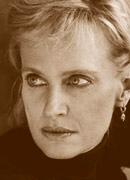
Siri Hustvedt spans two worlds in her writing, with her gorgeous, lyrical, often dreamlike fiction, including
What I Loved,
The Blindfold, and
The Sorrows of an American, and her nonfiction writing on science, art, and culture, which include
A Plea for Eros,
The Shaking Woman or a History of My Nerves, and
Mysteries of the Rectangle. Her new novel,
The Summer without Men, has a more comedic tone than her earlier fiction, but her familiar, razor-sharp intelligence and wit is everywhere in attendance.
Mia Frederickson, a 55-year-old poet, is completely shocked and unprepared when Boris, her husband, leaves her for a much younger woman. After a mental breakdown, she returns to her hometown to heal, spending time with her mother and her aged friends (the "Five Swans") and her neighbor and her young children, as well as teaching a poetry workshop to local teenage girls. The Daily Mail raved, "Engaging....Hustvedt's intensely visual writing spans the generations....[B]y turns funny, moving and erudite, playfully reminding us of a contemporary Jane Austen." And Booklist calls Mia "a companionable and mischievous narrator to cherish, a healthy-minded woman of high intellect, blazing humor, and boundless compassion."
The Summer without Men is Hustvedt at her most playful, a wonderful synthesis of psychology and philosophy ? and a host of other subjects ? and it will absolutely absorb you.
÷ ÷ ÷
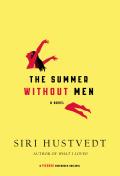 Jill Owens: What was the genesis of this book?
Jill Owens: What was the genesis of this book?
Siri Hustvedt: It's a good question. I often think about where a book started after I've finished it, because when I'm writing it, the last thing I'm thinking about is where it started.
When I was writing the book before this ? which is a nonfiction book about medical history and neuroscience and telling the story of my own undiagnosed seizure disorder ? I was thinking about the novel that I had wanted to write when I finished that. It really came from a number of stories, some personal and some much less personal, about people I knew who had suddenly and abruptly, without any warning or discussion, been left by the person they were married to ? stories where the guy goes out for cigarettes and never comes back.
It's interesting, since I've finished the book and some people have read it, they've come to me with more stories. So, one thing I've discovered is that this is not at all uncommon. I wasn't interested in writing a book about the disintegration of a marriage or two people who were always fighting and it ends in divorce. That, I think, is a very usual thing; it happens all the time. I was interested in the sudden abrupt departure in which, in this case, the wife doesn't know that there's anything wrong. It seemed like a great beginning. What if you've been married for 30 or 35 years and suddenly this person who's been your companion all those years just goes away?
That was really the beginning. When I go to sleep at night, I often "write" my books in some way, or I listen to my characters talking. This first sentence of Mia's became very important: "Some time after he said the word pause, I went mad and landed in the hospital." I spent a lot of time writing that sentence, writing that first paragraph. So, when I sat down to write, this person, Mia, had come to me. She really appeared as a being, and I realized that, first of all, I loved her. [Laughter]
And secondly, I spent 10 years writing books as men. For six years I wrote as Leo, a 70-year-old man, the narrator of What I Loved. Then I wrote The Sorrows of an American, and that took me four years, writing as a 47-year-old male psychiatrist. And I knew this time I was going to write as a woman. Not that I had had it with men; I love men. [Laughter] But it was time to write in the voice of a woman.
When Mia began to bubble and percolate inside me, I realized that she had this caustic, ironic, comic, and yet also sincere and deeply pained and hurt voice. One of the joys of writing the book was that once she appeared the book popped out of me in under a year. I laughed out loud while I was writing it. It was a strangely joyful experience, despite the fact that there are very painful aspects of the book.
Jill: Mia does have such a specific voice, which is such a different tone than in your earlier fiction.
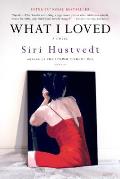 Hustvedt: It is! What's surprising, and I think what's fun, in a way, about being a fiction writer, is that it's very unlike my own voice. I mean, I write a lot of essays, and that's this measured, reasonable voice. [Laughter] Not weighty, I don't think. But I have a particular tone, especially when I'm writing in my very own voice, and it's not this wild woman making fun of sundry and various. [Laughter]
Hustvedt: It is! What's surprising, and I think what's fun, in a way, about being a fiction writer, is that it's very unlike my own voice. I mean, I write a lot of essays, and that's this measured, reasonable voice. [Laughter] Not weighty, I don't think. But I have a particular tone, especially when I'm writing in my very own voice, and it's not this wild woman making fun of sundry and various. [Laughter]
But, you know, there's got to be something down there, because I really took a lot of pleasure in it.
Jill: It's a pleasure to read. It's impressive that it's so wry and funny in the face of great suffering, and even madness.
Hustvedt: At one point in the book, when Boris is emailing her and they're having somewhat of a tête-à-tête again, he says, "Can we dispense with the irony?" She says, "How do you think I got through this?" The irony and humor are also forms of self-protection. And it's true. In order to have humor, you have to have distance, and Mia's humor comes from her blessed ability to have some distance from herself, to be able to look at herself in the third person now and again.
Jill: As you mentioned, your earlier work has been either from the point of view of men or has dealt largely with the relationships women have had with men. In this book, Mia's dealing with the "pause" in her relationship with Boris, but he's not physically present. Otherwise, all the characters and the relationships in the book are between women. What made you want to explore these female relationships?
Hustvedt: I had a desire. Writing novels is a strange business, because most of what happens to you is not entirely conscious. I'm conscious of some parts, but not others. But clearly ? and I think it might be a reaction to having written in the voices of men for so long [Laughter] ? I wanted on some level to exile men from the book.
Of course, they are very much present. They're present as emails, as thoughts. Mia's dead father is very much present. They're present as kind of eternal forces. It's a feminist book in this sense, that there's resistance. I wanted to not have any men present bodily. They're gone. They exert their pressure and presence, but they're not in the text itself. The only one who's there is the baby Simon, who's still inside the world of maternal care.
Jill: And he can't speak yet.
Hustvedt: He can't speak yet, and he's just handed over from one person to the next, giving them a lot of pleasure and annoyance. [Laughter] But that's his role. He's the baby.
So, it goes from the little girl Flora to the very old ladies at different moments of their lives. And, of course, Mia is a menopausal woman in her 50s who is trying to make sense of this radical change in her life. I don't mean menopause. I mean losing her husband! [Laughter]
What's interesting is that over the course of the book she gets pulled into these very interesting relations with these other women. In some fundamental way, it's enough. By the end of the book, I think you realize that it can be enough. I think she still wants Boris back in some ways, but things have changed considerably from her collapse in the psychiatric hospital until the end of the book.
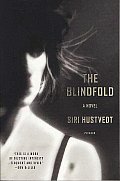 But it's a comedy. I mean a comedy in the old, Shakespearean sense that it ends well, or it ends on a hopeful note. Those comedies are dependent on that. If you think about something like Shakespeare's Romeo and Juliet and A Midsummer Night's Dream, there are aspects of those two plots that are very similar. In other words, the parents don't want their children to marry the people that they want to marry. In A Midsummer Night's Dream, it's a dream, and it all works out in the end, through magic. In Romeo and Juliet, there are bodies all over the stage.
But it's a comedy. I mean a comedy in the old, Shakespearean sense that it ends well, or it ends on a hopeful note. Those comedies are dependent on that. If you think about something like Shakespeare's Romeo and Juliet and A Midsummer Night's Dream, there are aspects of those two plots that are very similar. In other words, the parents don't want their children to marry the people that they want to marry. In A Midsummer Night's Dream, it's a dream, and it all works out in the end, through magic. In Romeo and Juliet, there are bodies all over the stage.
So, the difference between the comedy and the tragedy isn't so much in the unfolding of the story, but in the ending.
Jill: It's interesting that you describe the book as similar to a Shakespearian comedy, because those are often very fixed in time and space. And, unlike some of your earlier novels, The Summer without Men is very sharply fixed in space and time; the reader knows that from the beginning.
Hustvedt: Yes. It's a pretty brief period. It's a summer. And you know it's fixed in a specific place, but a lot of the book is made up of these fairly wild tangents of my narrator going off and, on some level, entertaining herself. The book is also, I think, about the imagination, about the possibilities of the human imagination. So Mia says things like, "I'll write myself elsewhere." There's something boring about Bondon, this little town, in the summer, too. Mia is a woman with a very fertile imagination.
I think Mr. Nobody, who comes into the text, also plays a role for her of intellectual stimulation that she needs. [Editor's note: Mr. Nobody is a mysterious figure who begins emailing Mia.] So, the book is grounded, but at the same time it becomes quite ungrounded. She has these tangents about sexual difference, neurobiology, men and women. From the epigraph of the book, which is from The Awful Truth, until the end, there are constant disquisitions on the problem of difference. Sexual difference, certainly ? What does it mean? Is it just genitalia? What are the other differences? How much does it matter?
There's also the question of someone like Alice, one of Mia's poetry students, who's branded "different" and suffers from the ostracism of her peers. Plutarch is quoted, and the Greeks were always asking these questions ? When does one thing become another? Is there change? What does change mean? ? that keep running through the book in a rather high-spirited way, but it's also quite serious.
Jill: That's one of the great pleasures of the book. She's a poet, so she has that imaginative side, but she also knows a lot about science, in part because of her husband, but in part just because she's interested in it, as well.
Hustvedt: Yes. This is something that I have in common with my narrator: We read a lot of science, philosophy, and literature, and so it's fun. One thing Mia says that's also true of me is that at some point in her late 40s suddenly she could dance, mentally. I think this is simply the accumulation of reading. If people read and read and read and read, something happens to you after awhile. [Laughter] And it's a great pleasure.
I remember when I was young, and I read a great deal, but I always felt that I was unable to synthesize what I read in the way that I wanted. I always felt humiliated and humbled by many writers, especially some of those great guys from the 1930s: Cassirer and Bakhtin and the Frankfurt School. You just think, How do these guys know all this stuff? How did they do that?
I'm not comparing myself to those great thinkers. All I'm saying is that over time these worlds of knowledge begin to blend, and you have a greater ability to synthesize the material that you've read for so, so, so many years.
Jill: That gives me a great deal of hope. [Laughter]
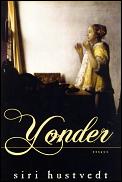 Hustvedt: It does! That's the thing. As an older person, one can say this to younger people: Something does happen to your mind. Just give yourself a few more years.
Hustvedt: It does! That's the thing. As an older person, one can say this to younger people: Something does happen to your mind. Just give yourself a few more years.
Jill: You mentioned Mr. Nobody, who reminded me of something you wrote in your essay about Dickens: "The novel charts a course that moves back and forth between the unrecognizable, unnamed, unconscious drowned no-body to the recognizable somebody who is a conscious, speaking subject." You go on to call the "fragmentary, unformed space" the "underneath" ? and it seemed to me that Mr. Nobody is part of Mia's "underneath."
Hustvedt: I think so. To be perfectly honest, I'm not exactly sure who he is, but you do understand that as Mia changes so does Mr. Nobody. He begins as this really persecutory voice, something cruel. As time goes on, a friendship develops. I do think this is part of the psychic changes that are taking place in Mia. He's an externalization of that.
Jill: Abigail is a marvelous character, and her subversive, hidden artworks are such a wonderful idea. (She's your dose of visual art in this book.)
Hustvedt: I'm glad that you liked her, because as I was going along, I just fell for her like a ton of bricks. [Laughter] And she is the visual art, her "secret amusements." I love this idea, and, again, who knows where this comes from, but the idea that this old woman really hasn't been able to express this part of herself that's a little sadistic and certainly subversive. She's had to hide it, so she creates these underground embroideries. I love the idea ? again, as part of a comic story ? that, at the very end, we know that Mia helps to get the pieces shown in this woman's collective in New York.
Jill: The girls in Mia's poetry class were fascinating, as well. The way Mia handled the situation of Alice's ostracism gave me a lot of sympathy for her.
Hustvedt: You know what was funny was that I didn't know what she was going to do. It's the interesting thing about writing books. You get yourself into a tangle, and then you say, "God, what is she going to do now?" [Laughter] And then I thought of this idea that these girls would write themselves elsewhere, the way Mia says earlier, when she's thinking of herself as Heathcliff or Shane. They write themselves into the positions of the other girls.
Jill: Which is something in this book and in a lot of your earlier work, too: where the I becomes you, or where the self ends and the other begins.
Hustvedt: Yes, yes, exactly. A mysterious question, and one that I have to say I'm still working out, because I'm really philosophically interested in the idea of the "between." I'm actually doing a big thing in Vienna: I'm giving the 39th annual Sigmund Freud lecture.
Jill: Wow. That's wonderful.
 Hustvedt: I know! It's a really big deal. I have written it, and the title of it is "Freud's Playground." It's talking about the psychoanalytic idea of transference in the psychoanalytic session, but also: What is this between space? Between people? What happens there? What are we talking about here, really? What is subject and what is object? There's a lot of research in many different fields about this, but I think it's fascinating.
Hustvedt: I know! It's a really big deal. I have written it, and the title of it is "Freud's Playground." It's talking about the psychoanalytic idea of transference in the psychoanalytic session, but also: What is this between space? Between people? What happens there? What are we talking about here, really? What is subject and what is object? There's a lot of research in many different fields about this, but I think it's fascinating.
Jill: In the course of Mia's breakdown, at the beginning, you write: "Insanity is a state of extreme self-absorption," which I think is very true, though I'd never heard it put that way before.
Hustvedt: I worked on a psychiatric unit as a volunteer writing teacher for about two and half years. I'm not sure I would have had that insight, exactly, if I hadn't spent so much time there. It's a psychiatric unit for inpatients, for very unwell people. Of course, the patients who could come to my workshop were able to get there, so they were already better than some of the other patients on the ward. But, really, the effort in the classroom for me was always to establish some kind of contact. In other words, to try to pull these people out of themselves. Depression is really an isolating illness, but psychotic problems are also isolating. You're having hallucinations. You're really living in your own world. I think health is coming out of that isolated cage into a world of others.
Jill: The way Mia's sister Bea serves as that trigger to help her heal.
Hustvedt: She brings her out. She helps to bring her back.
I gave Mia the perfect disorder, because people do have these psychotic breaks that never recur. The breaks are usually brought on by some terrible event that happens, and then they break down, and they have actual psychotic symptoms ? hallucinations and delusions. And then they're okay.
Jill: I think the book is also a wonderful, and terrible, exploration of aging ? what it does to your body and to your mind, but also the fear that the Swans have of losing their minds, their freedoms, and the grim humor and resignations that they've created to cope with death. You have the whole spectrum of life ? as you said, from Flora, the girls in the workshop, Lola, Mia, and then the Swans.
Hustvedt: I have to say that my mother, who's 88, lives in a complex very much like Mia's mother. After my father died, she moved there. She's in the "independent living" part of this place, and she has some absolutely marvelous friends. They are indeed mostly women, because the women outlive the men.
None of the Swans are specifically modeled on any actual real person. Probably Mia's mother is closer to my mother than any of the other characters. But the feeling of those women, their friendships, and the fact that they are deeply aware of tomorrow. Deeply aware, in a way that we're not. We somewhat younger people do not expect our lives will end or that we'll be stricken with a stroke, or fall, tomorrow.
These women are aware of that. It changes one's existence. I became quite interested in that. They're not torn apart by grief when they lose a friend. It's a different attitude.
Jill: Mia experiences metaphors and similes literally; when someone says "struck a chord," she hears a chord being struck on a guitar. I was wondering if you share that phenomenon.
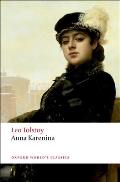 Hustvedt: I kind of do. Someone says something and I see it. The dead metaphor becomes re-enlivened as a picture in my mind. [Laughter] So, of course, since Mia's a poet, it seemed perfect that when people say these things that really have lost their meaning over time, she's still imagining the metaphor right in front of her eyes, so to speak.
Hustvedt: I kind of do. Someone says something and I see it. The dead metaphor becomes re-enlivened as a picture in my mind. [Laughter] So, of course, since Mia's a poet, it seemed perfect that when people say these things that really have lost their meaning over time, she's still imagining the metaphor right in front of her eyes, so to speak.
Jill: I was wondering what to call it. Poetic synesthesia didn't seem quite right...
Hustvedt: Not exactly, but maybe a little bit, from text to image. That's a crossover, in some way. I think in The Shaking Woman, I said something about the fact that reading is a form of ordinary synesthesia, because we translate these little black symbols on a page into images while we're reading, especially novels.
Jill: There's a dream-like quality to much of your work; I reread a lot of it this weekend and it was honestly kind of hard to shift back into a normal conversation afterwards. [Laughter] I wonder if you think that part of it may come from the fact that you're investigating the nature, and often the fluidity, of identity? Even in this new book, with Mia's sharp, defined voice, her time in the hospital is a stark reminder that selves are fragile, and mutable, and not at all solid.
Hustvedt: Possibly. I have to say that I've often thought about writing fiction itself as a form of conscious dreaming. If you think about it, a lot of it is like what Freud called the "dreamwork," which is something we all experience. You have a dream, and your mother or husband appears in the dream, and she or he doesn't look like her- or himself. The identity is there, but somehow the look is completely wrong, and in the dream you say, "Why does this person look like this?" Or two people come together in a dream, once you start to untangle it.
I think those kinds of condensations happen all the time in fiction, as well. They happen unconsciously. I have also come to think more and more, the older I get, that the state of writing fiction, and particularly writing well, is a state of tremendous openness and relaxation, so that material appears and comes in, which there would be no access to if you were tense. That openness is a way to a kind of creative movement and indeed fluidity that can be surprising, and surprising to the writer herself.
Jill: How do you think your work is changing, if you do, over the years?
Hustvedt: I think I'm looser. I think these things are just kind of sprouting up now. To be honest, I think some writers have an easier time of that. I think some writers just start like that.
I have this double life, as a kind of roaming intellectual and as a fiction writer. I got a PhD in English Literature. I read my brains out, and that can be very intimidating. [Laughter] You know what's out there. You know how good it is. You know how not as good you are. Sometime in my 20s, I let go. I stopped worrying about the fact that I wasn't Emily Dickinson or James Joyce. It just wasn't going to happen, you know? But you can still become an artist. You can still do whatever it is that you do.
But I think there's been lingering tension in me which is probably psychological, neurotic, if you will, and that some of that neurosis has loosened up in my old age. I think that's the difference.
Also, doing it for years and years, working at it for years and years ? whether you know it or not, and I think mostly you're not conscious of it at all ? does create a greater facility.
Jill: What are you reading and enjoying right now?
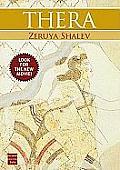 Hustvedt: I have a lot of nonfiction in front of me: On Being Moved: From Mirror Neurons to Empathy; Intersubjective Communication and Emotion in Early Ontogeny; The House of Make-Believe: Children's Play and the Developing Imagination. I have Tribute to Freud by H. D. I have Merleau Ponty's Phenomenology of Perception, because I always have that close to me.
Hustvedt: I have a lot of nonfiction in front of me: On Being Moved: From Mirror Neurons to Empathy; Intersubjective Communication and Emotion in Early Ontogeny; The House of Make-Believe: Children's Play and the Developing Imagination. I have Tribute to Freud by H. D. I have Merleau Ponty's Phenomenology of Perception, because I always have that close to me.
And I have to say, not long ago, I reread Anna Karenina for the third time. I hadn't read it since I was in my late 20s. It's just unbelievable. It's such an incredible book. And because I'm now 56 years old, there were aspects of the narrative ? of course, they had always been there ? that I had not understood in the way that I understand them now. It was a wonderful experience. I would say in the last month, I've consumed lots and lots of books, but that remains the greatest rereading experience.
I also read Thera, a wonderful novel by an Israeli novelist whose name is Zeruya Shalev. I've read her other work that's been translated into English, as well. She's fantastic. This is a wonderful novel that gave me intense pleasure. It's as psychologically astute as just about any novel I've read. She's really good.
Jill: There's so much you manage to pack into The Summer without Men, even though it's not a very long novel. Is there any other point you wanted to make about it that we haven't covered?
Hustvedt: I think that when I was writing the book, the paragraph that sort of summed up the book for me is near the end, and I gave it to Mr. Nobody. He talks about the unanointed, the people sitting in their rooms, writing. To me, this was a whole point of the book. There are these people who have been shut in, and they need to break out, and they find a way. The way Abigail sews and embroiders her way out is one example.
The little illustrations... Well, they're not really illustrations ? the visual punctuation that I drew for the book, you know, the four little pictures? Somehow the motion of the narrative is depicted in those four little pictures. She's in the box. She's slowly coming out of the box and peeking to see what it looks like outside. Then there's the very strange one, where the more realistic person is having a dialogue with the little, tiny naked person, which is some kind of doubling of the self. And then there's the funny little woman flying up in the air, outside of the box.
That's the motion of the narrative, and I guess that's why it's finally a comedy.